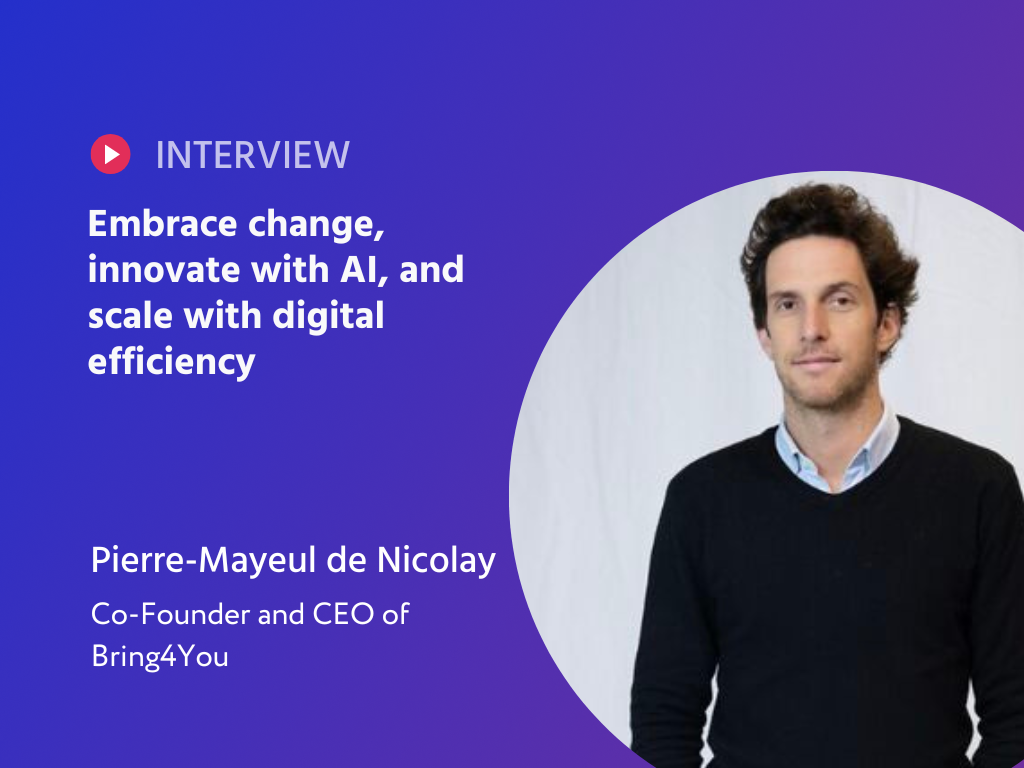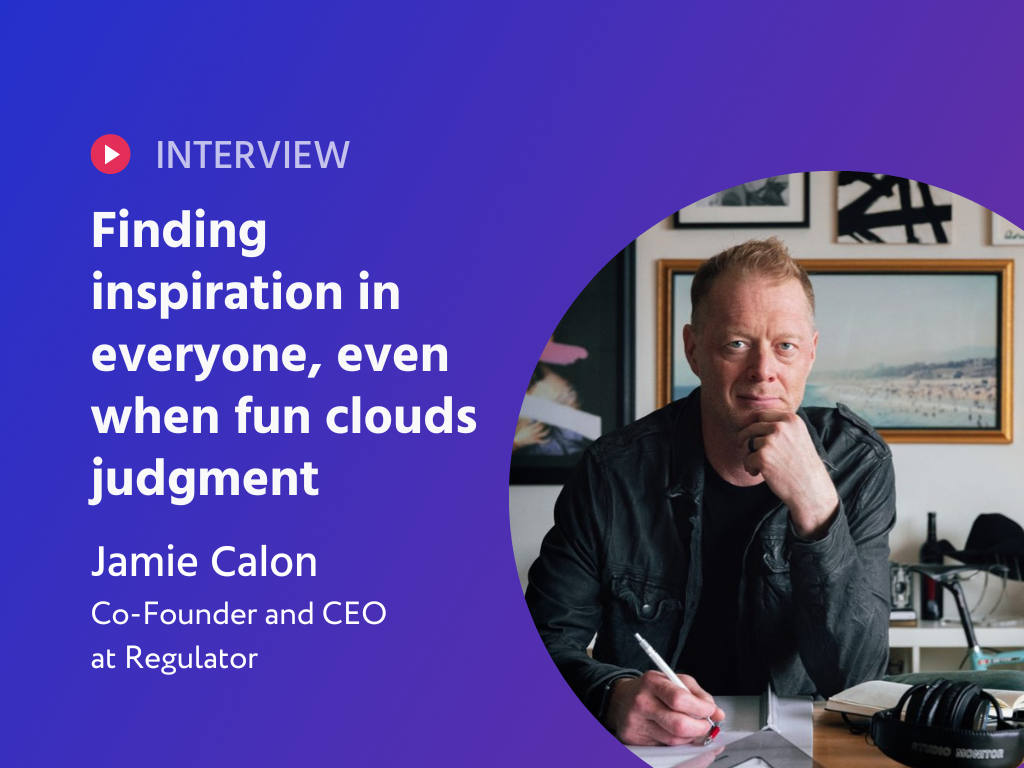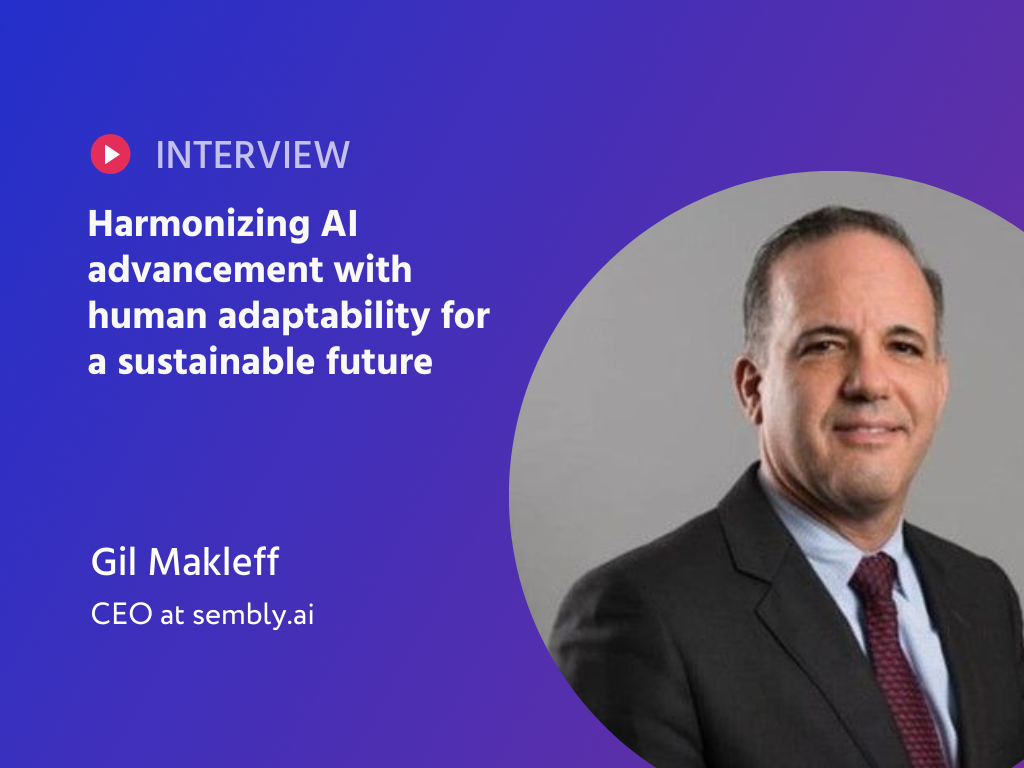In the ever-evolving landscape of the financial technology industry, few stand out as profoundly as Conrad Ford, the Chief Product and Strategy Officer at Allica Bank. We recently had the opportunity to delve deep into the operations of Allica Bank and understand the man steering its product and strategy direction.
Hosted by Temy, the international software development company known for fostering sustainable business models and innovative startups, this interview provides unique insights into the world of fintech and the journey of an industry veteran.
Battling through the challenges of a summer cold, our host navigates through a candid conversation, unpacking Ford's unusual path to success, the essence of Allica Bank, and the nuances of leadership in the fintech world. So, brace yourself for a captivating exchange that not only highlights Ford's impressive career but also brings to light some fascinating perspectives on the finance realm.
Conrad Ford: From World Traveler to Fintech Visionary
In an era where everyone seems to be on a fast track to success, Conrad's journey feels refreshingly different. It was revealed in the interview that this chief strategy mastermind at Allica Bank didn’t step into his first permanent job until the age of 27. Instead, he spent his post-university years traveling, seeking life experiences far beyond any traditional career track. Quoting Conrad, he mused about this period, "I spent most of my 20s traveling… I thought I'd see the world in six months." His journey offers a perspective many might resonate with - sometimes the path less taken leads to the most rewarding destinations.
Conrad's narrative is a testament to the power of versatility. He emphasizes that it's not about how early one starts in a field, but the breadth of experience they bring. "There's quite a lot of research recently that shows that people who went very early into a career… end up being less effective," Conrad explains. He cites major scientific discoveries often being made by outsiders who bring fresh perspectives to established fields. This, perhaps, is a nod to his own diverse experiences, suggesting that a broader worldview, rather than mere specialization, is essential in today's complex business landscape.
Having been at the helm of a growing business and witnessing its exponential growth, Conrad took a step back, reflecting on his mental and emotional journey. Stepping into the role at Allica Bank was a different ball game. His shift from a CEO position to a Chief Product Officer role wasn't just about titles. It was about understanding where his passion truly lay and being okay with the transition. Conrad's story underscores that success isn’t always about reaching the top. Sometimes, it's about finding where you can make the most significant impact.
I think by accident, I became somebody who has range
Conrad's Resilient Roadmap: The Weights and Triumphs of a Startup Founder
Conrad, a name now synonymous with tenacity and entrepreneurship, recalls his journey of handling the weight of expectations. As a founder, he was keenly aware of the immense responsibility that rested upon him. "Every single person relied on me. They bought into me, expecting me to help them look after their families and pay their mortgages," he reflected, emphasizing the magnitude of the trust placed in him. And when faced with the aftermath of his venture, the decision to work for someone else wasn't taken lightly.
I understand what a real crisis is… once you've seen a really big crisis, everything else looks like a minor fire to go and deal with
But amidst these challenges, Conrad faced his own battles, ones that many founders often hide behind closed doors. Speaking candidly about anxiety attacks and the immense pressures of entrepreneurship, he delved into the psychological toll the journey can take. "If you've never been a founder, you can never truly understand the weight on your shoulders," he mused. The fear of not being able to pay your team, of facing them with the possibility of shutting down, is a burden only founders truly grasp.
Through these struggles, there's also resilience to be found, a learning curve that Conrad emphasized. Every founder, according to him, needs someone to confide in, whether that's a co-founder, a mentor, or an advisor. And for those grappling with the idea of moving on, Conrad's journey shows that sometimes, the best thing for both the founder and the company is to recognize when it's time to pass the torch. It’s about ensuring that the business legacy built is larger than the individual, poised to flourish long after they've moved on.
Redefining Banking: Conrad's Vision of Combining Fin with Tech
Conrad leaned forward, the glint of passion unmistakable in his eyes, reminiscing about the conception of Allica, the brainchild that had consumed much of his recent years. "It's funny," he began, "I remember hearing about what would eventually become Allica, years before I even joined. It's an SME bank that resonates with my own journey in the same market." He painted a picture of the early stages of Allica, a time when the vision of a fully digital bank was still in its infancy. This wasn't just any bank, it was one that sought to bring back the lost human touch in financial services, the kind that local businesses once valued.
"The core of the SME segment isn't just millions of tiny businesses," Conrad explained. "It's those medium-sized businesses around industrial parks and high streets. They crave a personal relationship with their bank, something beyond just digital interfaces." Conrad's voice gained intensity as he drove home his point. "The vision for Allica has always been about using technology to bring back that personal relationship." He painted a vivid image: bank representatives visiting clients, iPads in hand, discussing cash flow, or perhaps even jumping on video calls. This approach, he believed, could reincarnate the old-fashioned banking relationships in the modern digital age.
But with Allica's rapid growth, challenges inevitably presented themselves. Conrad elaborated on the tightrope walk of blending the traditional "fin" with the innovative "tech". As he described the journey, a quote lingered: "No business plan survives first contact with a customer." He emphasized the importance of not just being digitally agile, but also understanding the depth of financial services. "In the run-up to the current tech winter," he remarked, "many Fintechs didn't understand the 'fin'." He underscored the pivotal role of the right leadership, blending the worlds of traditional banking and modern technology. And even as Allica grew from a team of 100 to 500, Conrad's focus remained unflinching: ensuring that every member felt empowered, aligned, and driven by Allica's pioneering vision.
No business plan survives first contact with a customer
Scaling Success with Conrad: Watching Out for Organizational Cancer
The inevitability of growth presents unique challenges to businesses, especially when the organization begins to burgeon rapidly. Conrad highlights the crux of these challenges when he mentions crossing the 500 threshold. It's not just about the numbers, but the underlying intricacies that come with them. At the heart of the issue is ensuring the right people are in the organization and curbing detrimental behaviors that, as Conrad vividly puts it, act like a "cancer."
You either face confronting leadership challenges or you die
Transparency seems to be one of Conrad's preferred tools to keep the corporate body healthy. He emphasizes the importance of having transparent company level objectives, known as OKRs (Objectives and Key Results), which allows everyone in the organization to see and understand the bigger picture. This not only instills a sense of purpose but also holds everyone accountable. After all, when everyone can see how they fit into the broader objectives, there’s no hiding.
But perhaps one of the most striking insights from Conrad is his management style. Dubbing it “fire and forget,” he underscores the importance of trusting one’s team after strategy is set. By ensuring that every one of his reports is better at their specific job than he would be, Conrad's approach underscores a fundamental belief in empowering his team, but not in a "soft, fluffy way." It's about rigorous execution and scaling success. And as the organization grows, the importance of attracting and retaining the best talent becomes paramount. Because as Conrad aptly puts it, even if the organization becomes "10 times bigger," one can't possibly work "10 times harder."





